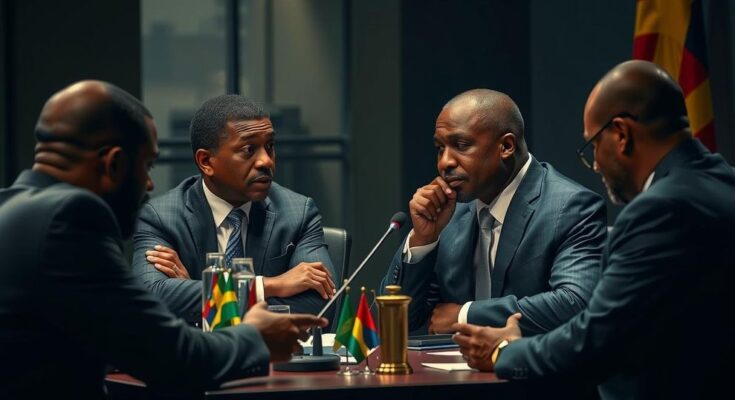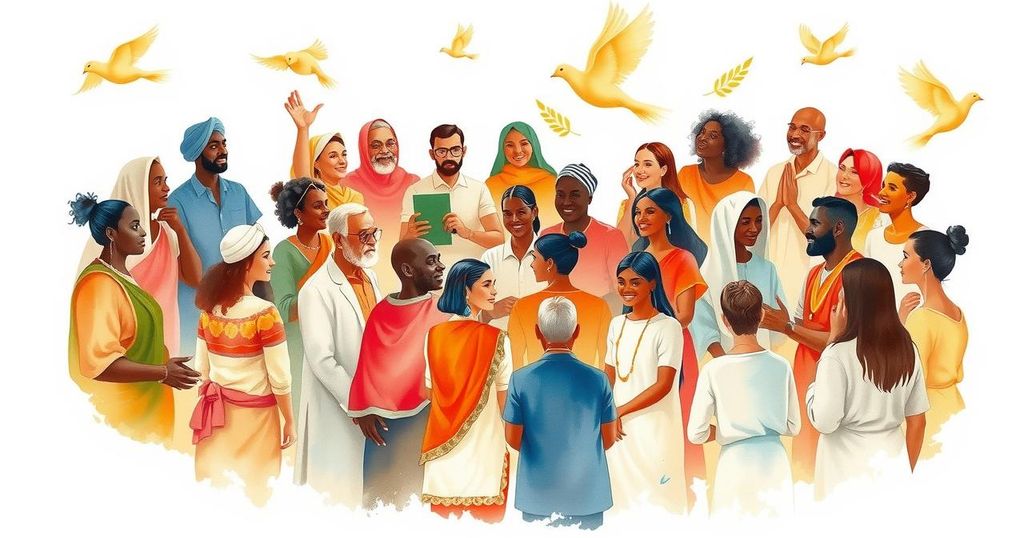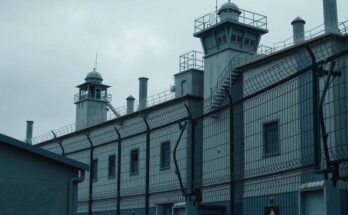The Democratic Republic of Congo is considering a constitutional review that may extend President Félix Tshisekedi’s tenure. Tshisekedi has expressed the need for a new constitution, criticized the current one as unsuitable for national needs, and has proposed the formation of a commission to draft reforms. The opposition is vehemently against any amendments, fearing the potential for a power grab, while religious leaders caution against destabilization due to such changes. The political landscape remains tense as various factions prepare for the implications of these discussions.
The Democratic Republic of Congo (DRC) is currently deliberating a potential constitutional review that may extend President Félix Tshisekedi’s tenure. Augustin Kabuya, Tshisekedi’s chief advisor, stated that the current constitution has “demonstrated its limitations in the exercise of public power”. In a recent address, President Tshisekedi expressed the necessity for a “worthy” constitution, indicating that he intends to establish a commission next year tasked with drafting a new constitution reflective of Congolese realities. He criticized the existing constitution as being imposed from abroad and not in accordance with national values. The constitution, adopted in 2006 following a referendum, was meant to stabilize the country’s governance structure post-conflict and was championed by former President Joseph Kabila. The opposition, particularly led by the late Étienne Tshisekedi, rejected it, suspecting motives to consolidate power. At present, the political climate has shifted. The ruling party, UDPS, is advocating for constitutional reform, with Kabuya emphasizing that the constitution must evolve to better suit contemporary political dynamics in the DRC. Although there have been no official propositions to amend term limits, Tshisekedi’s administration has been scrutinized for suggesting that he might only be effectively serving a fraction of his constitutionally mandated term. Opposition leaders, including Moïse Katumbi and Martin Fayulu, have voiced strong objections to any constitutional amendments, perceiving them as efforts to facilitate Tshisekedi’s grip on power. Neither leader believes that the constitution hinders governance, with Fayulu insisting that any assertion to the contrary lacks evidence. The Catholic Church has also expressed concerns, suggesting that such changes could lead to national instability, particularly in the current fragile context of the DRC. The opposition remains united against any attempts to revise the constitution, while uncertainty persists among Tshisekedi’s allies regarding the reaction from within the ruling coalition.
The current discourse surrounding the DRC’s constitutional review arises in a complex political environment, transitioning from decades of autocratic rule to a fragile democracy. The existing constitution, put into force in 2006, was intended to stabilize governance following a tumultuous history marked by violence and unrest. President Félix Tshisekedi’s proposals for reform are being scrutinized as potential maneuvers to extend his presidency beyond the constitutional two-term limit, a concern that echoes past attempts by his predecessor, Joseph Kabila, to circumvent similar restrictions. The underlying tensions between the ruling party and opposition factions illustrate the ongoing struggle for democratic governance in the DRC, amidst fears of backsliding into authoritarianism.
In summary, the Democratic Republic of Congo stands at a crucial crossroad as President Félix Tshisekedi advocates for a constitutional review that could potentially extend his leadership. The opposition remains steadfast in its resistance, citing historical precedents of power consolidation as motivation to maintain the current constitutional framework. With significant voices, including religious leaders, denouncing the reforms, the outcome of this deliberation could shape the DRC’s political future and its commitment to democracy.
Original Source: www.monitor.co.ug




